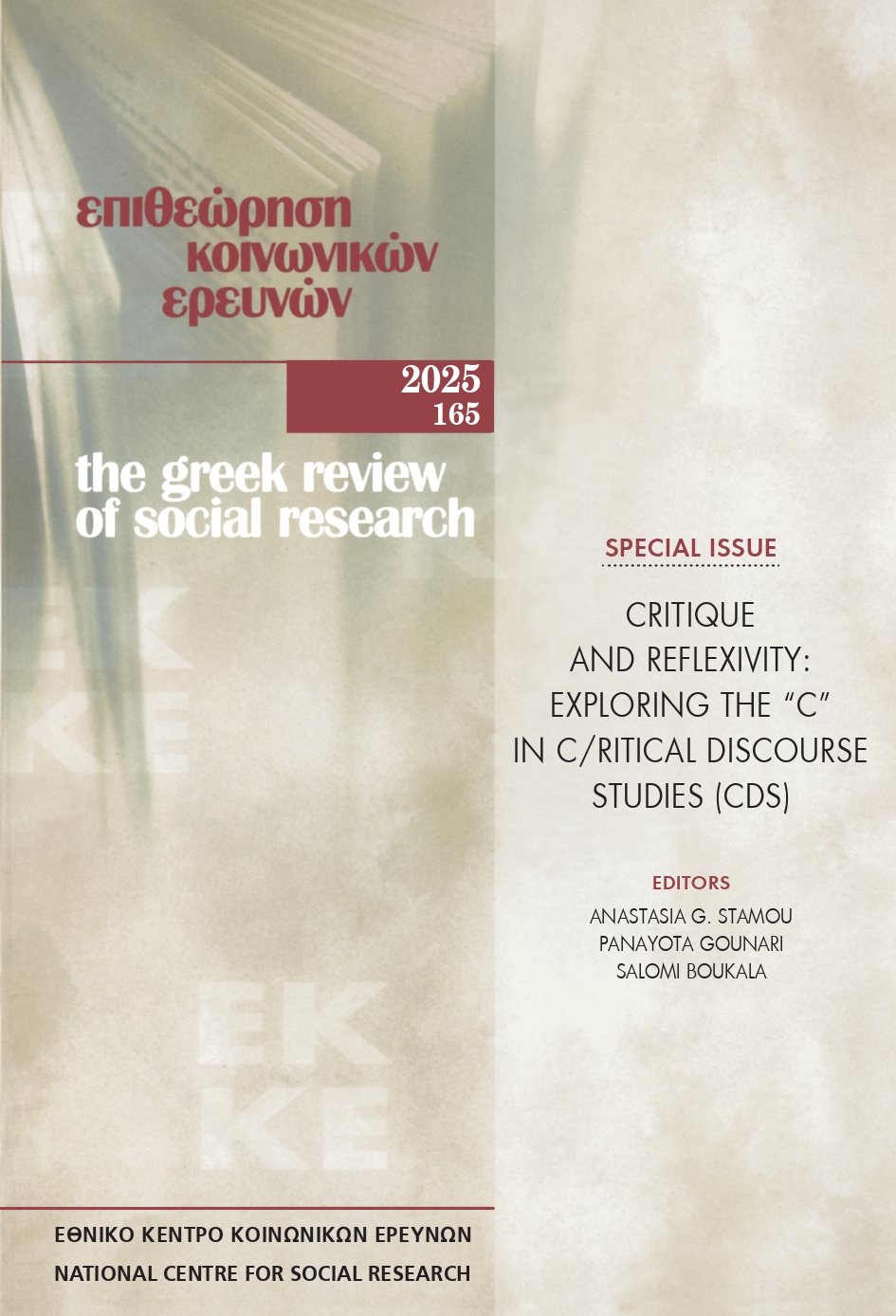Critical Notes on the Greek Homogenizing National Discourse from the Perspective of the Post-National Discourse

Abstract
In this paper, I elaborate on specific tools provided by Critical Discourse Studies (CDS) for exposing and critiquing the hypocrisy of the ‘humanitarian/antiracist values’ of the Greek national discourse. In particular, I focus on the interplay between the macro- and micro-levels of discourse and Ι apply Reisigl and Wodak’s (2001) concept of critique to reveal inconsistencies often masked by manipulative hegemonic discourse. I also explore the concept of prospective critique based on alternative, antagonistic discourses aiming to improve communication. Drawing on Fairclough’s (1992) and Laclau and Mouffe’s (1985) frameworks, I examine how antagonism between discourses challenges taken-for-granted assumptions. In this context, I review my research on the asymmetric representation of migrant and majority populations in Greek national discourse. Moreover, I propose post-national discourse as a means of critiquing the Greek national discourse, exposing the constructed and purportedly humanitarian character of its homogeneity and questioning its acceptance. Finally, I argue that this critique can inform educational approaches that destabilize homogeneous worldviews and promote cultural and linguistic hybridity, fostering more equitable interactions between migrant and majority populations.
Article Details
- How to Cite
-
Archakis, A. (2025). Critical Notes on the Greek Homogenizing National Discourse from the Perspective of the Post-National Discourse. The Greek Review of Social Research, 165, 95–122. https://doi.org/10.12681/grsr.42210
- Section
- Articles

This work is licensed under a Creative Commons Attribution-NonCommercial 4.0 International License.
Authors who publish with this journal agree to the following terms:
- Authors retain copyright and grant the journal right of first publication with the work simultaneously licensed under a Creative Commons Attribution Non-Commercial License that allows others to share the work with an acknowledgement of the work's authorship and initial publication in this journal.
- Authors are able to enter into separate, additional contractual arrangements for the non-exclusive distribution of the journal's published version of the work (e.g. post it to an institutional repository or publish it in a book), with an acknowledgement of its initial publication in this journal.
- Authors are permitted and encouraged to post their work online (preferably in institutional repositories or on their website) prior to and during the submission process, as it can lead to productive exchanges, as well as earlier and greater citation of published work (See The Effect of Open Access).


